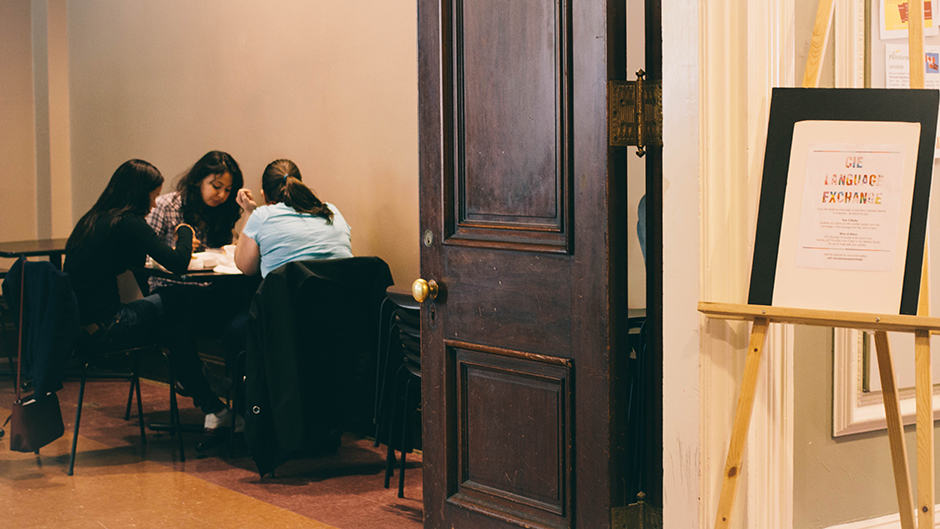Every year, hundreds of students participate in the University of Toronto’s Summer Abroad program, and hundreds more are interested in studying abroad, whether through an international U of T program or independently.
Despite this interest, with application deadlines approaching, many students say cost prevents them from applying.
Since its foundation in 1972, the program has grown steadily, and now offers 35 classes in 17 different countries. U of T students past and present in good academic standing, in addition to students at other North American universities who may enroll as visiting students, are eligible.
“The Summer Abroad program… was designed to facilitate students’ cross-cultural learning, and add to the diversity of students’ academic experiences,” says professor Joseph Desloges, Woodsworth College principal.
“LIVING TEXTBOOK”
The Summer Abroad Program, which differs from the semester-long and year-long student exchanges offered by the Centre for International Experience (CIE), as well as the international activities offered by the International Programs and Partnerships Office in the Faculty of Arts & Science, allows students to complete a U of T credit in 3–6 weeks.
The 35 classes offered are diverse, ranging from commerce courses in South Korea, to physics courses in Switzerland, to conservation biology courses in Ecuador.
Students may apply to a maximum of two Summer Abroad programs.
Aishwarya Sahal, a fourth-year student, travelled to the Moravian city of Brno in the Czech Republic on the Central Europe Program. “I got a chance to meet some really amazing people … [to] get to know my professor … and [to] do some hands on research,” she says.
“[The program] definitely inspired me to continue studying political science at a time when I was feeling a little disillusioned with the program,” Sahal says.
Melissa Clancy, also a fourth-year student, participated in the Italy program. “I mainly wanted to go to Italy and found the course [Modern Italian Culture] was a great way to ease into traveling,” she says.
“A lot of the traveling is planned for you,” Clancy adds, “so it was easier to sell to my parents.”
Travel is a core part of all programs, with numerous field trips planned for all participants.
FEES
According to the Summer Abroad website, the cheapest of the programs offered is the Science Abroad option, which includes courses in Hungary, China, and Taiwan. Disregarding medical insurance and spending money, Science Abroad costs $4,452 for domestic students and $5,607 for international students.
On the other hand, the environmental science course offered in Australia is the most expensive of the programs offered, totalling about $9,908 for domestic students and $11,063 for international students — due, in part, to the hefty $3,825 price tag for airfare.
International students pay more because, unlike domestic students, their fees are not supplemented by the per-student operating grant the Canadian government provides to the university.
All applicants also pay a $200 application fee. Admitted students who choose to withdraw at a later date are not refunded, while unsuccessful students receive a full refund.
“A lot of students come to university on a tight budget… and $200 is definitely a lot,” says Sahal. However, she admitted that going abroad is “a pretty big deal” that requires a lot of planning and preparation. “It could be a way to narrow down the students who are really motivated to go abroad,” she suggests.
For his part, Desloges maintains that the $200 application fee is to ensure that students who apply for the program intend to participate if they are admitted.
RESTRICTIONS ON FUNDING
The Summer Abroad program acknowledges the potentially off-putting cost of going abroad. To combat this, they offer a number of awards, scholarships, and bursaries.
According to Desloges, 100 students received Summer Abroad awards and bursaries last year.
However, some students noted the fact that certain colleges and/or programs of study offer more awards than others. For instance, of the awards, scholarships, and bursaries detailed on the Summer Abroad website, five are reserved for, or give preference to, Woodsworth College students. In addition, the St. George’s Society Award for study in the United Kingdom through a U of T program is reserved for students at Trinity College, Victoria College, or Massey College.
The Summer Abroad program in England is one of the oldest and largest programs, offering nine awards to domestic undergraduate students who have documented financial need. Programs in the United Arab Emirates, South Korea, and Peru offer two awards.
All domestic students may receive financial assistance through student loans or Summer Abroad Bursaries. Some colleges offer other awards, detailed on their websites.
International students, visiting students, and alumni are not permitted to apply for financial assistance.


